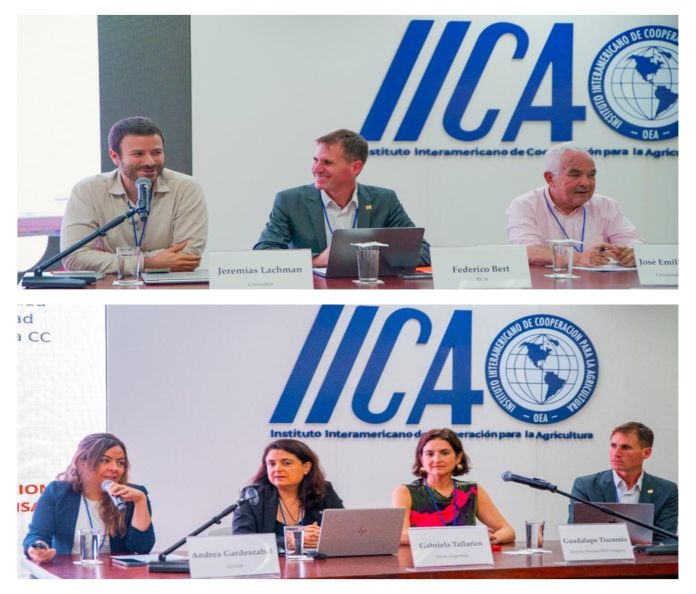SAN JOSE, Costa Rica, (IICA) – Technological infrastructure, training, knowledge transfer, funding sources, and public policies aligned with new innovation patterns are crucial to strengthening innovation ecosystems that stimulate the development and use of new digital solutions in agriculture across the Americas.
This was the consensus among experts convened by the Inter-American Institute for Cooperation on Agriculture (IICA) during the third edition of Digital Agriculture Week (DAW). The event focused on the role of science, technology, and education centers in digital innovation ecosystems.
DAW aims to be a strategic exchange forum on agri-food digitalization and a catalyst for collective action. The event is co-organized by IICA, CAF–Development Bank of Latin America, the Economic Commission for Latin America and the Caribbean (ECLAC), the CGIAR, and Bayer.
Participants in the debate on digital innovation ecosystems included Jeremías Lachman, an economist specializing in agricultural innovation and postdoctoral researcher at the Merit Institute in the Netherlands; José Emilio Guerrero, professor at the School of Agronomic and Forestry Engineering (ETSIAM) at the University of Córdoba, Spain; Andrea Gardeazábal, co-leader of CGIAR’s global innovation initiative; and Guadalupe Tiscornia, a researcher in information systems and digital transformation at Uruguay’s National Agricultural Research Institute (INIA).
Strategies and opportunities
Experts explored strategies and opportunities to consolidate digital innovation ecosystems for sustainable agricultural development in the Americas. They agreed that digital transformation is key to addressing current challenges in food security, climate change, and competitiveness.
“The digital transformation is a reality across the region. Digital ecosystems must adapt to the new consumer profile. Public policies should focus on simplicity, scalability, and advancing technological development, AI programs, and public goods production,” said Lachman.
Guerrero noted: “The context in which we work is changing: geopolitics, climate change, natural resource deterioration, and urban-rural dynamics. We need new, real-time metrics.”
The meeting emphasized strengthening regional cooperation to share knowledge and resources, accelerating digital innovation growth in Latin America and the Caribbean. Gardeazábal pointed out the importance of partnerships: “Resources are limited, and we must achieve food security, sustainability, and climate adaptation through responsible technological and social research.”
Andrea Gardeazábal, co-leader of the global innovation initiative of CGIAR; Gabriela Tallarico, Coordinator of the AgTech program at the National Institute of Agricultural Technology of Argentina; Guadalupe Tiscornia, researcher in information systems and digital transformation at INIA in Uruguay; and Federico Bert, Manager of IICA’s Digitalization of Agrifood Systems Program.
Practical examples from CGIAR were also shared, illustrating the global effort to strengthen innovation ecosystems.
The dialogue highlighted the fundamental role of research and education centers in building robust digital agricultural ecosystems, acting as innovation catalysts and developing technologies while training professionals to lead digital transformations in their communities.
Guadalupe Tiscornia from INIA Uruguay discussed the joint efforts of South American Agricultural Research Institutes to strengthen their role in innovation ecosystems.
“We aim to collaborate on larger projects with common action lines in AgTech training, digital solution demonstration spaces, and entrepreneur support,” said Tiscornia. “The idea is to work collaboratively for a more regional ecosystem, consolidating ourselves as key players.”

